Classic joins Clean Jurassic Coast for a beach clean
Marketing updatesRoy and his team of trusty volunteers work tirelessly throughout the year, educating the general public and arranging beach cleans, kayak trips and boat missions to reach hidden coves, ensuring our beautiful Jurassic Coast (the only Natural World Heritage site in England) and the wildlife that lives there is protected. With 95 miles of stunning coastline, from the red cliffs of Exmouth to the chalk cliffs of Studland, it is an ongoing challenge!
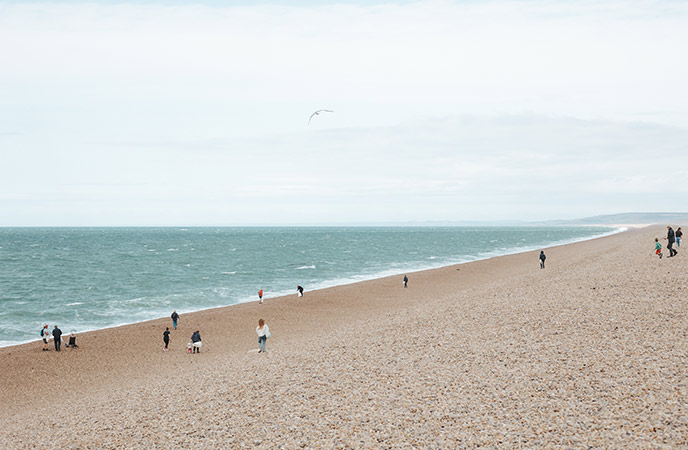
On 20th August, during Portland Week, our staff based at our Bridport office stepped up to the challenge, along with a variety of family members (including the youngest team member Florence) and staff from our Head Office marketing team. The day started with strong winds and showers but soon cleared and after a safety brief from Roy we set off from Clean Jurassic Coast base at Portland Quay to Chesil Beach, armed with grabbers and sacks for rubbish collection. The coastline along Portland is stunning, with a steep shingle beach which stretches for miles.
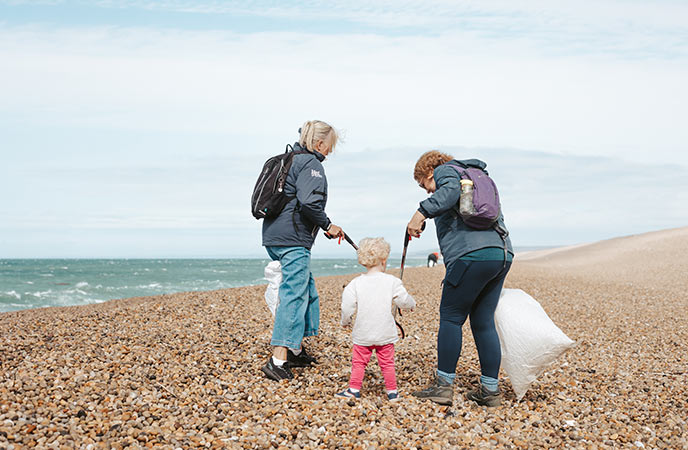
We were all soon immersed in the task, collecting a variety of rubbish including cans, plastic bottles, fishing nets and discarded barbecues. Chesil Beach is made up of shingle and quite a demanding environment to clean, especially in strong winds, however the team prevailed and spent several hours ensuring the area was left as clean as possible. One special task set for the team was to collect as many plastic bottle tops as possible, Alice was our top scorer and the collection for the week topped 868 bottle tops! Last year, for the same week 724 were collected, so hopefully this is not the start of a worrying trend!
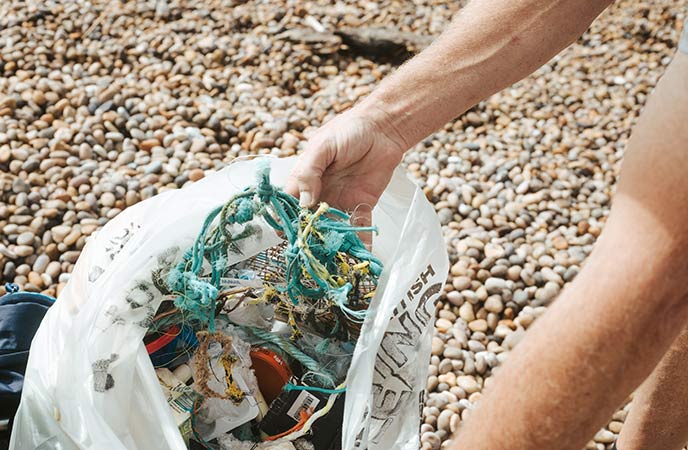
Back at Portland Quay, Roy explained how our haul of rubbish would be recycled (in the UK to lessen its impact) and the environmental damage we are causing with single-use plastic. He noted that plastic was originally invented in the 1800s to replace ivory, and not only was this unsuccessful but it led to the overuse of plastic we see today.
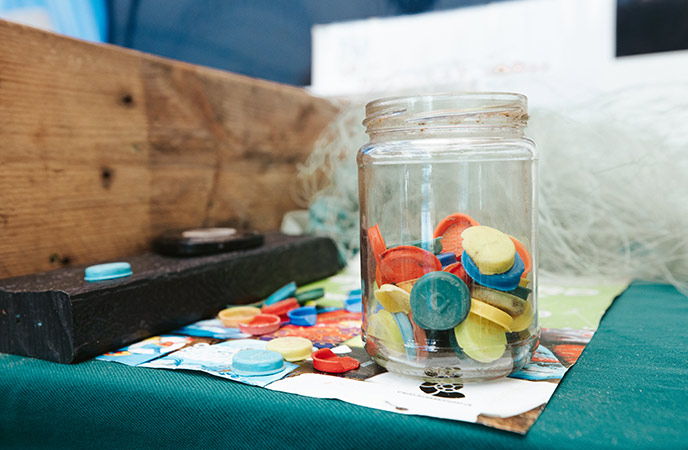
Nurdles are small pellets of plastic, created from tiny pieces of plastic broken down over time from larger items and regularly mistaken for food by wildlife with terrible consequences, one of many reasons beach cleans are so important in stopping the process. Bio-beads are a similar size to nurdles, used by water treatment plants to help clean up wastewater these beads can end up in our seas and can be mistaken for food, they are highly toxic! The beads are similar in size to nurdles but look closer and you will see a ridged or misshapen exterior, usually darker in colour. If you do come across either nurdles or bio-beads please do safely pick them up with a sieve if possible and wash your hands thoroughly afterwards.
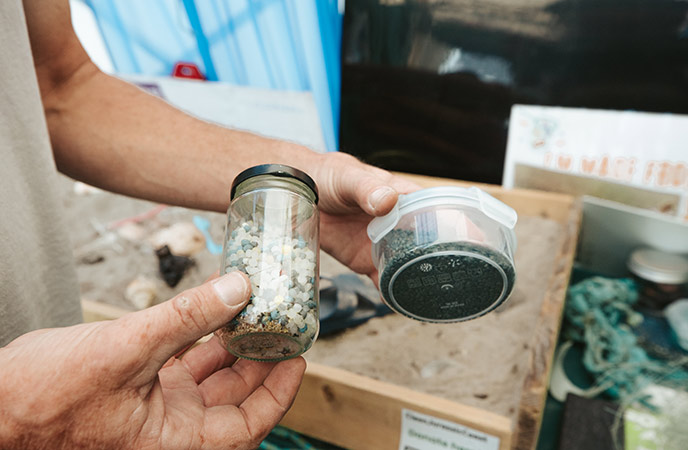
All hard/ridged plastics go to DCW Polymers in Exeter where they are shredded, cleaned and made into garden furniture. Fishing net is sent to Milspeed in the Cotwolds to be shredded and cleaned so it can be made into various household products. In-house they make plastic sheets which are used in toilet and shower blocks, shoe components and pellets are also sold to other manufacturers.
Bodyboards are stripped down and the polystyrene is used for things like home insulation with the material used for bunting. Both are sometimes used in art products. Other items like balls, lighters, flipflops and more are upcycled.
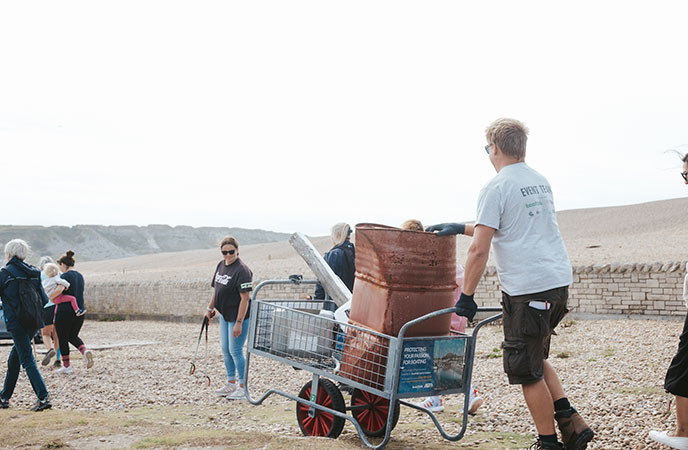
Classic Cottages is delighted to have helped with the purchase of litter pickers for children and a trolley to assist with the backbreaking work of carrying the rubbish back from the beach. So far in 2024 the Clean Jurassic Coast team have collectively removed over 3 tonnes of plastic from the coastline, a whopping 3034kg!
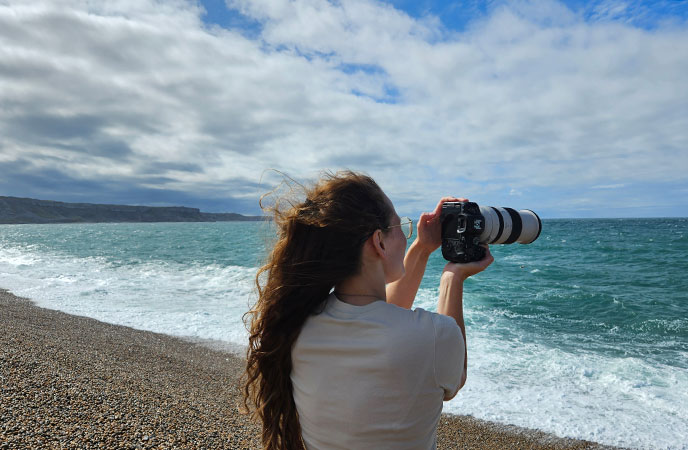
If you would like to help at a beach clean or donate to this worthy cause, further information can be found on their website.

